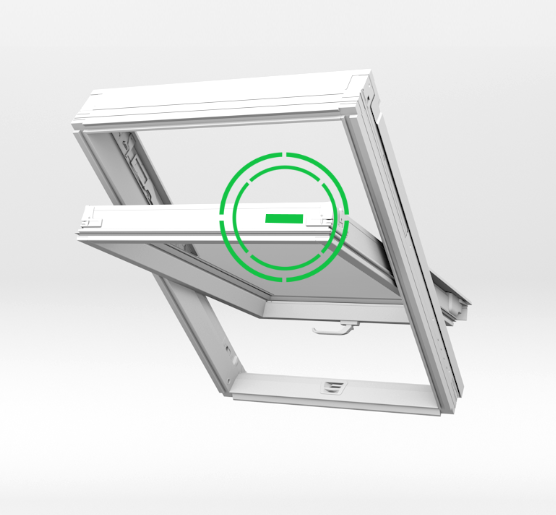Why Is It Important to Measure Blinds for Roof Windows Correctly?
Transforming your attic into a usable space requires careful adaptation to meet your needs, and roller blinds are a key element in creating a functional interior.
A common disadvantage of attics is the excessive heat build-up during summer, as sunlight streams through roof skylights, making the space unbearably hot. Conversely, in winter, attics often lose heat quickly and become cold. Well-fitted roller blinds can address both issues by regulating temperature and controlling natural light.
What Tools Do You Need to Measure Roof Window Blinds?
To measure roof window blinds accurately, it’s useful to check instructional videos from the online retailer where you plan to buy your blinds. These videos often provide guidance on measuring for different blind types. Regardless of the type, you’ll need:
-
A metal tape measure
-
A ladder
-
Measuring guides, which may be available from the retailer
How to Identify Your Roof Window Type and Size
To order the correct accessories for your roof window, including internal blinds, you’ll need to know its size and type. This information is usually found on the rating plate, located in the top right corner of the roof window sash.
The rating plate contains essential details about the window model, including its exact dimensions and product code. This information is useful not only for ordering blinds but also for warranty claims, repairs, or purchasing other accessories such as gaskets, hinges, or catches.
In addition to checking the rating plate, use a tape measure to verify the window’s dimensions before placing your order.

How to Measure the Width and Height of the Roof Window Accurately
Accurate measurements are the key to selecting the right blinds. To measure your roof window:
-
Width: Measure from edge to edge of the window frame. The blind casing should be approximately 2 cm wider, while the blind fabric should be 2 cm narrower to ensure a proper fit and prevent jamming.
-
Height: Measure from the top to the bottom edge of the window frame. Choose a blind that is slightly longer to avoid gaps between the fabric and the glass.
Common Mistakes to Avoid When Measuring Roof Window Blinds
Even the most stylish and functional roller blinds won’t perform well if measured incorrectly. Here are common mistakes to avoid:
-
Failing to check window dimensions on the rating plate
-
Not measuring the entire window recess
-
Overlooking the slope of the window – blinds must fit precisely with no gaps
-
Using improper measuring tools, resulting in skewed results
-
Ignoring potential obstructions like window handles or sills

How to Choose the Right Blinds Based on Your Measurements
Roof blinds serve several essential functions: they provide thermal comfort throughout the year, maintain privacy, and enhance the aesthetic appeal of your loft. Once you have accurate measurements, you can focus on selecting the right type of blind. A wide range of options is available to suit your preferences for size, colour, and style. Popular types include:
Fabric Roof Blinds
Fabric blinds move along two side guides fixed to the window frame, allowing precise control over light levels. Depending on the fabric colour, these blinds can completely darken a room, which is particularly useful in children’s bedrooms. Common options include:
-
Sunscreen blinds for partial light filtering
-
Blackout blinds for total darkness
Pleated Roof Blinds
Pleated blinds have a geometric design that fits seamlessly into any style of interior. They don’t use a winding tube; instead, the fabric folds into an accordion shape when not in use. Mounted directly on the window frame, these blinds are available in various fabrics, including:
-
Standard polyester
-
Thermal insulation materials
-
Blackout fabrics
-
Honeycomb fabric, which offers excellent insulation and noise reduction
Should You Consider Professional Help for Measuring Roof Window Blinds?
Whether you seek professional assistance depends on your confidence and familiarity with the process. Professionals can ensure accurate measurements and proper installation, eliminating the risk of errors. If you’re short on time or unsure about your measurements, hiring a professional is a worthwhile investment. This ensures your blinds perform effectively and last for many years.
By taking the time to measure your roof windows accurately—or enlisting professional help—you can enjoy a comfortable, functional, and stylish loft space.






